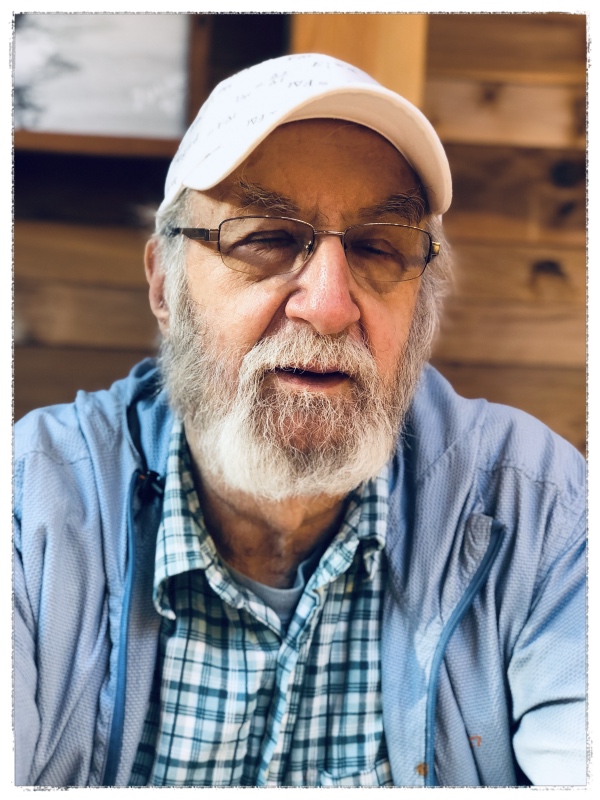 In this episode of the Getting Under The Surface (GUTS) podcast, I talk with a long-time colleague and brain guru, Mark Brady, Ph.D., who I met over a decade ago when I was writing a blog called Daddy Brain. Back then, I interviewed Mark about topics like children’s brain development and positive and negative forms of discipline.
In this episode of the Getting Under The Surface (GUTS) podcast, I talk with a long-time colleague and brain guru, Mark Brady, Ph.D., who I met over a decade ago when I was writing a blog called Daddy Brain. Back then, I interviewed Mark about topics like children’s brain development and positive and negative forms of discipline.
As you may have guessed, today’s topic is brain-centric, and it’s an important one … trauma
OUR DISCUSSION INCLUDES:
- How to identify and deal with trauma in healthy ways
- Trauma and disease
- How we can help children deal with, and overcome, trauma
- How movement, mindfulness and meditation positively affect the brain
- Metabolizing the stress hormone
- Becoming more aware of, and moving past, our childhood trauma
Listen to the full episode HERE.
EXCERPT FROM THE EPISODE …
Mark: So moving the body is a is a is a powerful way to help metabolize stress hormones associated with trauma.
A number of years ago, Christmas Eve, my wife and I are getting ready to go to bed. And all of a sudden there’s this loud knock at our door. And who’s this? I go the door, the dog starts barking and I open the door … cautiously.
I look out and there’s a guy there. And he’s wide eyed. And he says, “Did you know that your chimney is on fire?”
I didn’t. And so I looked. Up until I actually went up and looked, I was relatively calm. But then I saw these eight foot giant flames shooting up off the roof. And my stress hormones just went through the roof. So great that I couldn’t think, I basically froze. And suddenly, then I could hear myself in a little child’s voice. I said, “What should I do?” And the guy who knocked on my door said, “Well, you should probably call 911. And see if you can use your hose.”
And it’s winter, right … And so I go the first hose bib, turn it on, it’s frozen. I go the next one, it’s frozen, I’m racing around the house, right? I go the one that we keep outside there, we put the water for the dogs, and it’s working.
So immediately I run it, grab a ladder, and jump up and climb up on the roof on the ladder, and I take one squirt with the hose and that immediately knocked down the flames. And as soon as I saw that, I could feel my stress hormones just going down again, I knew the house wasn’t gonna burn down. It’s gonna be okay.
Joey: Mark, that’s some story, I can see it. And I could identify with it also — that moment, where it’s literally just a moment where it’s almost like a switch gets flipped, right? We could be completely fine. And then it’s like our brain stops working.
It’s funny that you mentioned water. I look what you call the stress hormones like it’s a raging river. Like at any moment, an external source can cause a flood or an internal source. Just internal anxiety, fear, worry, thoughts, thoughts, emotion. And I look at it like it’s it’s like a river. And even when the river is raging, you know, the question is, am I drowning in it? Which, for a moment, you were when you’re when your chimney was on fire — or are we making space so we can observe it? It doesn’t mean it’s not happening, it doesn’t mean we’re not experiencing something traumatic or intense. It just means that we are still able to
identify what’s going on and kind of process it, and make room for thought. Instead of panic.
Mark: Yeah, that’s right. We can’t really think well, when stress hormones are doing their thing. And basically what they do is they sever what’s called the binding proteins that keep the cells connected. High levels of stress hormones just sever them, they just run through the network and cut all the connections.
So you can’t think.
With the fire, once I realized that we’re not going to lose the house, we’re not going to lose all our possessions. It’s going to be fine. Everything came back online. And that’s that this is a key piece. That’s how fast cells in the brain connect and disconnect.
Listen to the full episode HERE.
—
MORE ABOUT MARK BRADY, Ph.D.
Mark is a transpersonal neurobiologist, neuroscience educator, and recent throat cancer survivor. He spent 10 years at The Center for Advanced Study in the Behavioral Sciences at Stanford, one of the nation’s premier think tanks (according to him: “stalking behavioral scientists in their natural habitat, undercover as the maintenance man!”). He is also the prize-winning author of a number of books, magazine articles and academic papers and has published The Flowering Brain blog regularly for 14 years.
RELEVANT LINKS
Visit The Flowering Brain blog
Mark Brady, Ph.D. books
The Anatomy of an Upset, by Mark Brady, Ph.D.
Trauma & Chronic Illness, by Veronique Mead, MD, MA